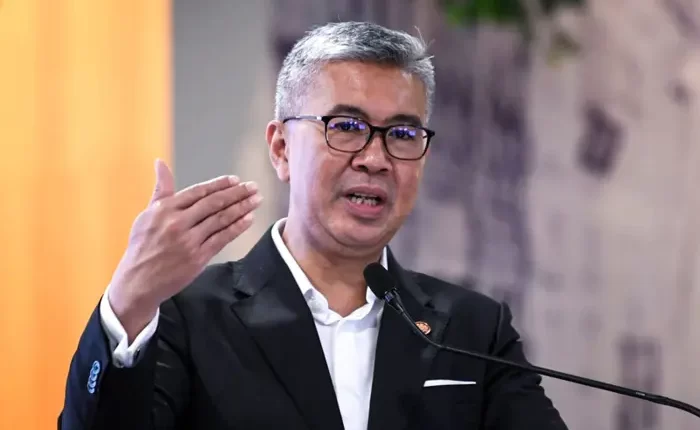KUALA LUMPUR: The country needs to address the challenges faced in developing the right human workforce, particularly the engineering profession as it moves towards the successful execution of the government’s economic plans, namely the New Industrial Master Plan (NIMP) 2030 and the National Semiconductor Strategy (NSS).
Investment, Trade and Industry Minister Tengku Datuk Seri Zafrul Abdul Aziz said without the right human capital and the right talent management of human capital, it is difficult for the country to realise its dreams and aspiration to become an industrialised nation.
He said that given the geopolitical environment today, Malaysia is at a sweet spot where industries are converging, and companies are realigning and redefining their supply chain.
“Malaysia is involved with 16 free trade agreements (FTAs), both bilaterally and multilaterally. And in those FTAs, talent is the focus because we want the economic spillover effects to benefit the local communities,” he said in a panel session titled “Strategic Integration of Trade, Talent Management and Industry Policies: Fuelling Economic Growth Through Human Capital Development” for “The Ministers Leading From the Front: Creating A Talent-Driven Economy – Government Policies and Practices” programme here Friday (June 28).
Meanwhile, Tengku Zafrul told the media that the government plans to be “agile” and dynamic and to use the “whole of government approach”, which involves all the ministries involved in engagement sessions with industry.
“With this approach, I am optimistic that the country will be able to speed up efforts to train and produce the necessary engineers,” he said.
Although Malaysia is not producing that many (engineers), Tengku Zafrul said there have been improvements in the (number of) enrolments according to the Higher Education Ministry.
“At least it is moving in the right direction. There is no quick fix for this,” said Tengku Zafrul.
He said it is important to destigmatise the traditional and conventional view on technical and vocational education and training (TVET) especially to parents, families and guardians, and stressed that TVET is equally important and not secondary to the academic track.
“However, I think this is slowly changing. Even when looking at developed countries, TVET is a crucial stream towards industrialisation, for example in Germany and many other countries.
“We must ‘widen the talent funnel’, which must begin at primary school. We need to build a robust pipeline of future-ready industrial workforce primed for embracing innovation in key technologies,” he said.
In the next five to 10 years, Malaysia is targeting 60,000 skilled technology/engineering based talents to attract high-quality investments that creates higher-paying jobs.
-Bernama
-TheStar

